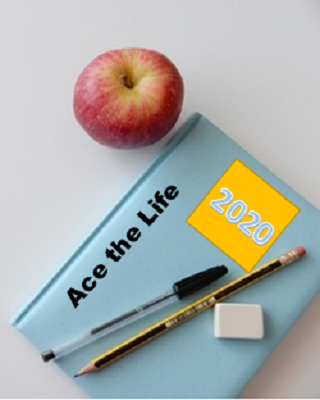Story

Prepare & practice for the job interview
You can't guess specific questions in advance, which will be asked in the interview. However you can prepare in advance for commonly asked questions. Interview questions are categorized as
--------------------------------
1. Skills based questions
--------------------------------
These questions are related to the functional knowledge, experience, and industry practices. These questions help find the difference between theoretical and practical knowledge.
--------------------------------
2. Behavioral questions
---------------------------------
These questions show aptitude, problem solving approach to a role and soft skills.
Preparing and practicing for the commonly asked job questions is a good strategy to ace the interview. It prepares you mentally and you become more confident. Content (What to say) and delivery (How to say) will helps.
Preparation brightens your chances of success. The most commonly asked job questions are related to
• About you - Education, abilities, strength and weakness
• Work Experience - Job history, current role and achievements
• Why are you looking for a change
• Tell me about a situation and show the actions and results
• Salary question
As a candidate, you need to convince the interviewer that you are the right candidate by demonstrating the right behavior supported with real stories based on your experience, abilities, attitude and skills.
Throughout the interview process, recruiter is interested to know, do you have the right skills and experience. Are you a good match? Will you be able to deliver? Will you be a good fit to the culture? To do well in the interview, one needs to show the interviewer you are not only a good fit for the job but also better than others.
How does your skill set match the job requirement? Think about your strengths, experiences which matter the most for this job. Embed these in your answers to convince the interviewer. Practice your script. Practice but do not memorize. Even if you come across a known question, do not blurt our the reply. Take time to get comfortable with the question and then answer. Do not be a robot.
You need to understand the intent of each question. Do you have the right experience? Have you handled such a situation successfully? Can you learn from your mistake? What value add you will bring to the employer? Now package what you have, customize it and deliver to the interviewer. Create confidence in him that you are the one who will do it better. Express each answer supported with your work life experiences. Also it is not about past but about future i.e.what you promise to deliver.
As you practice the answers, you will gain confidence and this will reduce the anxiety. Practice will hone your interview skills.
We have listed most commonly asked job questions and categorized in Top10, Top30, Top50 ... so that you can move up the practice ladder at your pace. Happy practicing.
Photo adaptation / Pixabay / mohamed_hassan-5229782
Share on
Similar Stories
Previous Ten










How to answer "Tell me a Situation" question?
The interviewer is interested to know if you are...

Ace the job interview - A checklist
The interviewer is meeting up few candidates to...

Next job search checklist
New job search is a time consuming and...

What would you do if you won a lottery?
Your reply will reaffirm your commitment to work...

Tell me one thing about yourself you wouldn't tell
What are those things you do not want to tell...

What tools do you use to keep yourself organized?
Tell about your tools and techniques which you...

What are your teaching moments beyond work?
The interviewer is interested to know what is...

Why do you seek a position in this field?
Tell about your passions and drive for being...

How do grades represent you as a person?
The answer to this question depends upon your...

What will you miss about your present job?
What are those things to which you are attached...
Demonstrate the soft skills in your resume
It is important that while you write the resume, your soft skills stand out in your resume. Read through the job description carefully and cull out the skills which the employer is looking for. Ensure to demonstrate these skills in your resume through your work and projects. At times we have the skills but fail to bring it out in our resume. That is a mistake, we should avoid.
Hard skills are important for the job. But we are surprised that soft skills are equally and more important than hard skills. The key soft skills provide us an advantage over other candidates.
To succeed in any profession, it is necessary to have important soft skills. A doctor needs to have empathy and listening skills to deal with a patient. A manager needs to have people skills to manage and lead his or her team. A supply chain manager needs to be good at negotiations. Every role needs key soft skills, for a person to succeed in their profession.


Sign In to share your comments
Your Comments